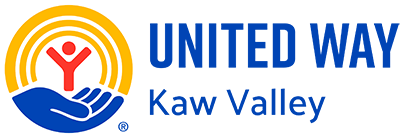
Certified Community Resource Navigators link community members to the local landscape of service providers to improve their access to housing, healthcare and other resources. Navigators listen, advocate, and act on behalf of everyone in the communities that they support. Navigators also support nonprofits by guiding clients/potential clients through documentation gathering and applications, making time spent with local agencies more effective.
United Way of Kaw Valley’s Community Resource Navigation program is sponsored by Blue Cross and Blue Shield of Kansas and UWKV donors.
Community Partners
Are you a community-based organization looking to get in touch with our Community Navigation team? Email us at UWCommunityResourceNavigators@uwkawvalley.org
to learn more about becoming a partner, update your existing resource card and more.

